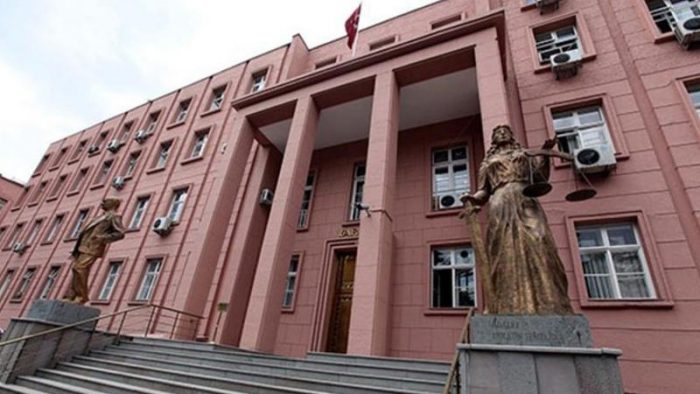The Chief Public Prosecutor’s Office at Turkey’s Supreme Court of Appeals has appointed a prosecutor to process a criminal complaint filed by a chamber of the appeals court against members of the Constitutional Court due to their decision on a jailed lawmaker, the state-run Anadolu news agency reported.
A judicial crisis was recently ignited by the case of Can Atalay, an opposition lawmaker from the Workers Party of Turkey (TİP) who filed a petition with the Constitutional Court claiming rights violations due to his continued incarceration despite acquiring parliamentary immunity in the May elections.
The Constitutional Court ruled in favor of Atalay, but the Supreme Court of Appeals defied this decision, sparking widespread criticism and accusations of a judicial coup.
The top court ruled last month that Turkey had violated Article 67 of the Turkish Constitution, which concerns one’s right to elect, stand for election and engage in political activities, as well as Article 19, which concerns the right to liberty and security.
Atalay was not released from prison despite the top court’s decision, with a lower court referring the case to the Supreme Court of Appeals, which upheld his 18-year conviction in September.
In a move that triggered a significant backlash, protests and accusations of a judicial coup, the Supreme Court of Appeals made its controversial decision against the release of the lawmaker in addition to filing criminal complaints against top court judges.
The prosecutor who has been appointed by the appeals court will now work on the criminal complaint filed by the 3rd Chamber of the Supreme Court of Appeals against nine members of the Constitutional Court who found rights violations in Atalay’s incarceration.
The prosecutor will then present a report to Bekir Şahin, the top prosecutor of the Supreme Court of Appeals. Şahin will send a petition to the Constitutional Court, which will make a decision about whether its members should be investigated. The court’s members who face an investigation will not be included in the decision-making process.
The top court has 15 members. Nine of its members found rights violations in Atalay’s continued imprisonment, while five of them voted against it and one judge was absent on the day of voting.
The Turkish judiciary faces widespread criticism for its perceived lack of independence. Critics accuse President Recep Tayyip Erdoğan of exerting control over the judiciary and establishing one-man rule in the country, particularly after a coup attempt in 2016, following which he launched a massive crackdown on non-loyalist citizens and the country’s subsequent transition to a presidential system of governance, which granted him vast powers.
Many say there is no longer a separation of powers in the country and that members of the judiciary are under the absolute control of the government and cannot make judgments based on law.
In a development that validated the critics, Turkey was ranked 117th among 142 countries in the rule of law index published by the World Justice Project (WJP) in October, dropping one rank in comparison to last year.

